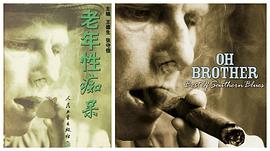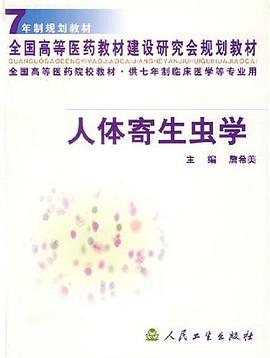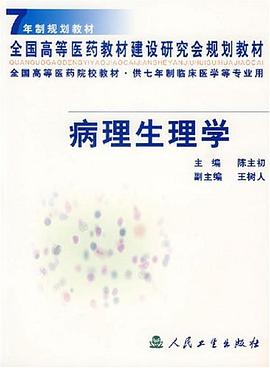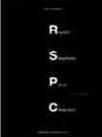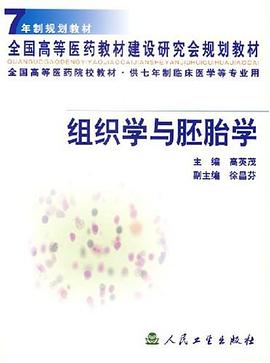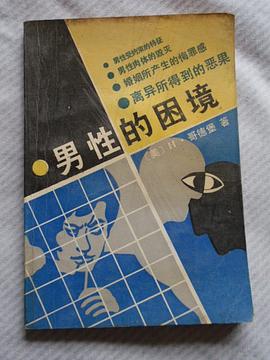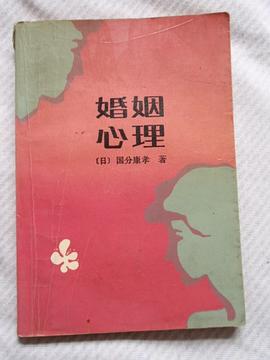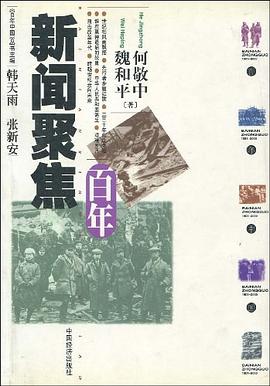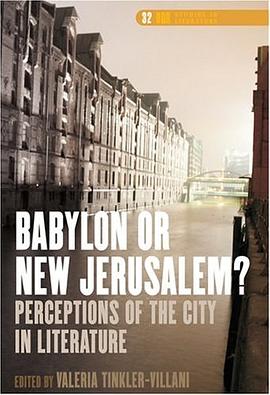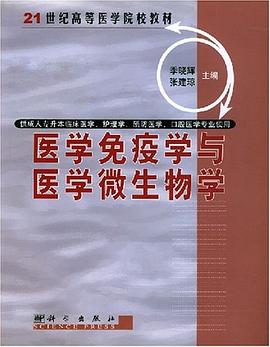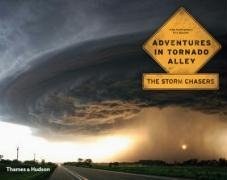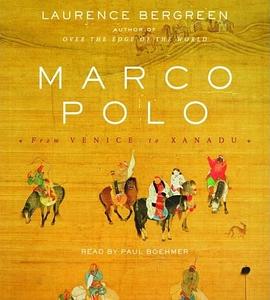

具体描述
Book Description
================
http://www.laurencebergreen.com/marco.html
NY Times Book Review:
Here’s a lesson in the graceful acceptance of defeat. In 1298, the Genoese navy bested the Venetian fleet at the Battle of Curzola. Unable to live with the disgrace, one Venetian commander, Andrea Dandolo, killed himself by beating his head against his ship’s mast. Another Venetian leader, Marco Polo, surrendered calmly, was taken prisoner and spent a few years writing his memoirs in comfortable captivity. Dandolo’s fame died on the deck; Polo’s will outlive our grandchildren. Few famous names have as much vagueness attached to their exploits, though. Marco Polo opened Asia to European trade, so we’re told, but we generally don’t know much else. Laurence Bergreen remedies that by bolstering Polo’s reputation and arguing for his historical importance in a book as enthralling as a rollicking travel journal. Bergreen, who has written biographies of Louis Armstrong, James Agee and Irving Berlin, turned his attention to ancient explorers with “Over the Edge of the World,” which tracked Ferdinand Magellan’s circumnavigation of the globe. I was a fan of that book, but “Marco Polo” far outshines it, and not surprisingly. Marco Polo, unlike Magellan, left his biographers a masterpiece of a memoir to work with.
Marco Polo wasn’t the first European to venture into what we now know as China; he wasn’t even the first Polo. In 1253, Marco’s father, Niccolò, and uncle Maffeo set off on a trading journey to the heart of the Mongol empire established by Genghis Khan. To their contemporaries, this was madness. Genghis Khan had established his kingdom by leading expert warriors, 100,000 strong, on campaigns marked by extreme brutality. Word got around. In Europe, Bergreen writes, “the Mongols were considered Satan’s spawn, among the most lawless, violent and sinful people on the face of the earth.”
The Polo brothers knew something their peers didn’t: Genghis Khan and his successors were pitiless warriors, but they were just as fierce about keeping the post-conquest peace. Sensing a chance for profit in the Pax Mongolica imposed across Asia, the Polo brothers journeyed to the court of Genghis’s grandson and imperial heir, Kublai Khan. The man they met bore no resemblance to his reputation. Kublai Khan welcomed foreign traders and exhibited a rare tolerance and interest in all religions, including Christianity.
Sixteen years later — business trips were a stretch back then — Niccolò Polo returned to Venice to find that his wife, now dead, had given birth to a son 15 years earlier.
In 1271, Niccolò and Maffeo took Marco with them on another journey to the court of the great Khan. Marco hit it off so well with the emperor that he stayed with the Mongol ruler for the next 17 years, earning his keep as a tax assessor and trusted adviser. Acting as Kublai Khan’s eyes and ears, Marco roamed Asia and Africa and reported back to the emperor on the people and taxable commerce he encountered. Shortly before Kublai Khan’s death in 1294, Marco returned to Venice, assumed his place as a prominent merchant, fought the Genoese at Curzola and eventually wrote his famous memoir.
He should have been forgotten by history. The merchant Benjamin of Tudela and the Franciscan missionaries Giovanni da Pian del Carpini and William of Rubruck beat him to market with manuscripts about their travels in the exotic land. But Marco Polo, Bergreen points out, had two advantages rival authors lacked: he took great notes and had a terrific ghostwriter.
On his return journey to Venice, Marco Polo carted back years’ worth of journals and reports. While a captive of the Genoese, he sent for those notes (nobility had its privileges even in a prison) and used them to jog his memory. Also prodding him was his co-author, Rustichello of Pisa, a fellow prisoner and experienced writer of popular romances. Rustichello knew how to play up the drama, and in Marco Polo he found a rare subject. “Without the stubborn Pisan to force the Venetian wayfarer to sit still long enough to dictate his overflowing reminiscences,” Bergreen notes, “the story of Marco’s travels would never have been written.”
What the two came up with was nothing short of a blockbuster. Marco Polo’s “Travels” spilled over with sex, violence, suspense, exotic lands, strange people and bizarre practices. Mongol horsemen thundered out of its pages. Marco dazzled readers with descriptions of the singing sands of the Desert of Lop and a firsthand account of the metropolis of Quinsai, now known as Hangzhou, the most advanced and prosperous city in the world. Marco recounted the cutthroat politics of Kublai Khan’s court in all its delicious drama, complete with power-mad counselors, back-stabbing colleagues and grisly executions.
Temptations of the flesh abounded. Marco was forever stumbling into the 13th-century version of the farmer’s daughter joke. Time and again the delighted young man — remember, he was teenager when he set out from Venice — found villagers lined up outside his tent offering their nubile daughters for his pleasure and their honor. His description of Kublai Khan’s sexual talent search, with scouts scouring the provinces to send the best of the best to the emperor’s bedchamber, reads like a fable spun by Scheherazade.
Lest readers think his journey was one big Tom Jonesian romp, Marco included the dark side, too. He had to elude marauders, survive shipwrecks and cross treacherous deserts. Anxiety, loneliness and thirst were constant companions. In Myanmar, he survived a night among villagers who regularly murdered noble visitors to trap their souls and bring good fortune to the house. Poor Marco. As he rode into each new town, he didn’t know whether he was checking into the Playboy mansion or the Bates Motel.
The world he encountered was stranger than any fable he’d been told in Venice. “Wherever he roamed,” Bergreen writes, “Marco Polo found examples of the natural order of things overturned: astrologers conjuring up tempests at will; salt employed as money; householders inviting strangers to lie with their wives, sisters and daughters; deadly serpents yielding life-saving medicine — a dizzying succession of curiosities and paradoxes.”
Curiously, the figure who makes the greatest impression in Bergreen’s biography isn’t Marco Polo but his patron, Kublai Khan. Marco was many things: master capitalist, ancient journalist, all-time champion traveler. As a person, though, he’s a bit thin and empty. He’s more of an Everyman watching amazing events unfold.
Kublai Khan, by contrast, comes off as both a giant of history and a man of flesh and blood. His excesses were legendary, of course — Samuel Taylor Coleridge immortalized his summer palace, Xanadu — but the emperor doesn’t deserve the Caligula rap. His religious tolerance and encouragement of international trade marked him as a ruler with wisdom that put him centuries before his time. Marco describes Khan as a bold, politically deft administrator who knew how to play territories and factions off one another to keep the kingdom’s peace. The emperor used paper money, unheard of in Europe, to unify the empire’s economy. “Marco revealed Kublai Khan’s splendid realm not as a static, remote fantasyland populated by savages,” Bergreen writes, “but as a vital state constantly on the alert for danger — an empire that never slept, where swift messengers moved by night if necessary, their way marked by reassuring rows of trees and lit by flickering torchlight.”
In the end, Marco Polo’s greatest contribution to history was to deliver this simple news to Europe: The Asians, they’re not so bad. They’re kind of like us. In some ways, they’re better.
作者简介
劳伦斯·贝尔格林是位优秀的作家,他毕业于哈佛大学。他的代表作品有《在世界的边缘:麦哲伦的环球之旅》《雅梅斯·阿吉:一个生命》《路易斯·阿姆斯特朗:奢华的生活》《卡波恩:他的为人与时代》《数以千计的呼唤:欧文·柏林的一生》。 劳伦斯的每一部作品都堪称经典之作。
目录信息
读后感
马可•波罗的游记已经流传了数百年了,不仅在中国、意大利、欧洲,以致在全世界,马可•波罗早已是深入人心的人物。关于他的话题、关于他的是是非非,还是不断爆出争议,诸如:“他为什么没有写长城?”“他为什么没有写中国人用筷子?”“他为什么没有写中国女人的小...
评分图书封面六个字“商人、旅人、使者”,平淡、简洁概括了马可•波罗的三重身份。当年行走在古丝绸之路上的形形色色的商人数以万计,马可•波罗不过是沧海一粟。马可•波罗的家族在威尼斯有着稳定的生意,他算得上是当地的“富二代”了。但少年的他对外面的世界有着无...
评分图书封面六个字“商人、旅人、使者”,平淡、简洁概括了马可•波罗的三重身份。当年行走在古丝绸之路上的形形色色的商人数以万计,马可•波罗不过是沧海一粟。马可•波罗的家族在威尼斯有着稳定的生意,他算得上是当地的“富二代”了。但少年的他对外面的世界有着无...
评分图书封面六个字“商人、旅人、使者”,平淡、简洁概括了马可•波罗的三重身份。当年行走在古丝绸之路上的形形色色的商人数以万计,马可•波罗不过是沧海一粟。马可•波罗的家族在威尼斯有着稳定的生意,他算得上是当地的“富二代”了。但少年的他对外面的世界有着无...
评分马可•波罗的游记已经流传了数百年了,不仅在中国、意大利、欧洲,以致在全世界,马可•波罗早已是深入人心的人物。关于他的话题、关于他的是是非非,还是不断爆出争议,诸如:“他为什么没有写长城?”“他为什么没有写中国人用筷子?”“他为什么没有写中国女人的小...
用户评价
这本书的书名暗示着一个清晰的时间和空间轴线,从西方的起点威尼斯,到东方的终点“Xanadu”,也就是元上都。我希望作者能够以一种循序渐进的方式,引导我穿越这漫长的旅程,让我能够清晰地感知到时间在流逝,空间在变化。从威尼斯出发时的踌躇满志,到中途的艰辛跋涉,再到最终抵达中国时的震撼与欣喜,每一个阶段的描绘都至关重要。我尤其想知道作者是如何处理马可·波罗的《马可·波罗游记》这部著作的。这本书的真实性一直备受争议,作者是否会对此进行深入的探讨,例如引述不同的历史证据,分析其中的矛盾之处,并给出自己的判断?他将如何平衡“历史事实”与“文学创作”,让这本书既有学术的严谨,又不失阅读的趣味?我很期待能从这本书中获得对马可·波罗本人及其作品更深刻的理解。
评分《Marco Polo: From Venice to Xanadu》这个标题让我联想到的是一段跨越时空的对话,仿佛马可·波罗本人正坐在我面前,向我娓娓道来他的奇幻旅程。我希望这本书能够展现出马可·波罗的“人性化”的一面。他是否也会有疲惫、恐惧、孤独的时候?他在面对异国文化和习俗时,是否也会感到困惑和不适应?作者是否能够捕捉到他在旅途中那些细微的情感波动和内心挣扎?我尤其关注作者对马可·波罗的“叙述者”身份的解读。他作为一个旅途的记录者,他的叙述方式、语言选择、以及他对细节的侧重,都会影响我们对整个旅程的认知。书中是否会探讨他作为一名“商人”的身份,他的商业活动是否是他旅行的重要组成部分,他对财富的理解又是怎样的?
评分我迫不及待地想知道作者是如何呈现马可·波罗与忽必烈汗之间那段令人称奇的交集。毕竟,一个普通的威尼斯商人,如何能够获得蒙古大汗的信任,并被委以重任,在广阔的帝国中巡游?书中是否会深入探讨马可·波罗在忽必烈汗宫廷中的生活,他如何适应宫廷的礼仪和政治环境?他对元朝的政治体制、军事力量、城市建设,乃至普通民众的生活有哪些细致的观察和记录?我尤其关注作者对马可·波罗作为一名“外国专家”的定位的解读,他是否真的为忽必烈汗提供了独特的见解和建议?而当马可·波罗结束了漫长的旅程,回到威尼斯时,他又如何向那些习惯了日常生活的人们讲述他在东方所见所闻的奇闻异事?他的叙述是否被接受,是否引起了轰动,或者被视为天方夜谭?这本书的价值,或许就在于它能否将这些历史的碎片,巧妙地编织成一个引人入胜的故事。
评分“From Venice to Xanadu”不仅仅是一个地理上的移动,更是精神上的探索。我希望这本书能够深入挖掘马可·波罗的内心世界。是什么样的动力驱使他不断前进,克服重重困难?是对财富的渴望,对知识的追求,还是对未知世界的好奇心?书中是否会描绘他在旅途中产生的思想变化,他对世界和人生的看法是否因此而改变?我特别期待作者能够深入分析马可·波罗在异国他乡的体验,他如何理解和接受与自己文化截然不同的事物?例如,他对中国的货币、纸币、邮政系统、城市规划,以及当时领先的科技和发明,比如火药、指南针等等,会有怎样的观察和描述?这些细节无疑能够展现出那个时代的先进文明,也能够让我们窥见马可·波罗敏锐的观察力和惊人的接受能力。
评分我被这个书名所吸引,因为它不仅仅是一个名字,更是一个故事的开端,一段传奇的序曲。我希望这本书能够深入探究马可·波罗的“故事性”和“历史性”的平衡。作者是如何收集和整理马可·波罗生平以及他游记的资料的?他是否参考了大量的原始文献,并对它们进行考证和分析?书中是否会涉及一些关于马可·波罗生平的争议,例如他的行程是否真实,他是否夸大了某些经历?作者将如何处理这些历史上的疑问,并为读者提供一个有说服力的解读?我非常期待这本书能够提供一种全新的视角来理解马可·波罗,不仅仅将他视为一个简单的旅行家,更是将他置于当时错综复杂的历史背景之下,来分析他的行为动机和他的历史意义。
评分这本书的标题让我瞬间联想到那个充满异域风情、横跨欧亚大陆的传奇旅程,就像一幅色彩斑斓的画卷在我脑海中徐徐展开。刚拿到这本《Marco Polo: From Venice to Xanadu》时,我的内心就充满了期待。作者是如何捕捉到这位13世纪探险家那令人难以置信的旅程的精髓的?他是否能将马可·波罗那充满艰辛、奇遇和惊叹的漫长跋涉,从威尼斯的繁华港口一路延伸到忽必烈汗那宏伟的元上都,生动地呈现在我的眼前?我很好奇作者会如何处理大量的历史资料和传说,以及如何平衡史实与故事性,让这段历史在我阅读时变得触手可及。这本书的书名本身就极具画面感,让人不由自主地想象起海风吹拂着帆船,驼队在沙漠中蜿蜒前行,以及那些曾经只存在于想象中的遥远国度。我期待着能在这本书中找到关于马可·波罗个人性格的深刻洞察,了解他为何会踏上如此危险却又充满魅力的旅程,以及他在异国他乡所经历的种种挑战和感悟。
评分这本书的名字《Marco Polo: From Venice to Xanadu》本身就充满了史诗般的色彩。我期待作者能够以一种宏大而细腻的笔触,勾勒出马可·波罗的壮丽人生。这本书是否会关注马可·波罗在旅途中扮演的“桥梁”角色?他如何将东方的奇珍异宝、先进技术、以及独特的文化习俗带回西方?他的记述又如何影响了欧洲人对中国的认知,甚至在后来的地理大发现时代扮演了重要的角色?我尤其希望作者能够深入探讨马可·波罗的《游记》对当时欧洲社会的具体影响。这本书是否在欧洲引起了广泛的关注和讨论?是否激发了人们对遥远东方的向往和探索欲?作者是否会分析当时欧洲社会对马可·波罗叙述的接受程度,以及可能存在的质疑和误解?
评分我对书中关于马可·波罗在旅途中所经历的各种地理环境和社会风貌的描绘非常感兴趣。从地中海的碧波荡漾,到中亚的戈壁荒漠,再到中国的黄河长江,他穿越的地理跨度之大,本身就足够令人惊叹。作者是如何运用生动的语言,让我仿佛身临其境地感受到那些极端的气候,崎岖的地形,以及沿途遇到的不同民族和他们的习俗?我期待书中能有详细的描述,例如他如何应对旅途中的疾病,如何与陌生人沟通,如何处理突发的危险?书中是否会提及一些他所遇到的具体人物,可能是帮助过他的向导,也可能是与他发生过冲突的官员?对这些细节的挖掘,能够让马可·波罗的形象更加立体和鲜活。同时,我也期待作者能探讨马可·波罗的旅程对后世欧洲的影响,他的记述是否激发了更多的探险家,是否改变了欧洲人对东方的认知?
评分从这本书的封面上,我便感受到了扑面而来的历史厚重感。它不仅仅是一本关于一个历史人物的书,更像是一扇通往过去世界的窗户。我尤其好奇作者是如何描绘马可·波罗在威尼斯出发前的状态,那时的他,是一个怎样的年轻人?是怀揣着怎样的勇气和好奇心,告别熟悉的故土,踏上这充满未知的前路?书中是否会细致地描绘他如何学习东方语言,如何准备行囊,如何与家人告别?而当他穿越波斯、中亚,最终抵达中国时,那视觉和感官上的冲击又该是如何的强烈?我会非常关注作者对当时中国社会、文化、经济以及政治的描绘,马可·波罗作为一位来自西方的“局外人”,他看到了什么,又理解了什么?他对中国的描述,是基于纯粹的观察,还是受到了当时的社会背景和个人经历的影响?我期待这本书能提供一个多维度的视角,让我不仅看到马可·波罗的旅程,更能感受到那个时代的脉搏,以及东西方文明在那个时代交汇的独特魅力。
评分我一直对历史上的伟大旅行家充满敬意,而马可·波罗无疑是其中的佼佼者。这本书的书名就足以激发我的好奇心,让我想要了解他那段跨越了大陆和文化的传奇旅程。作者是如何展现马可·波罗在旅途中的个人成长和蜕变的?他是否从一个初出茅庐的年轻人,逐渐成长为一个经验丰富、见多识广的旅行家和商人?书中是否会涉及一些他在旅途中遇到的挑战,比如语言障碍、文化冲突、甚至是政治上的危险?我希望作者能够详细地描绘他如何运用智慧和策略来应对这些挑战,从而确保自己的安全并继续前行。同时,我也很好奇作者是如何处理马可·波罗在描述中国时所采用的语言和风格的。他使用的词汇,他对事物的比喻,都可能反映出他当时的认知水平和文化背景。
评分作蒙古人、接受佛教、看大汗怎样挣扎,将这些消息告诉威尼斯人。
评分作蒙古人、接受佛教、看大汗怎样挣扎,将这些消息告诉威尼斯人。
评分作蒙古人、接受佛教、看大汗怎样挣扎,将这些消息告诉威尼斯人。
评分作蒙古人、接受佛教、看大汗怎样挣扎,将这些消息告诉威尼斯人。
评分作蒙古人、接受佛教、看大汗怎样挣扎,将这些消息告诉威尼斯人。
相关图书
本站所有内容均为互联网搜索引擎提供的公开搜索信息,本站不存储任何数据与内容,任何内容与数据均与本站无关,如有需要请联系相关搜索引擎包括但不限于百度,google,bing,sogou 等
© 2026 book.quotespace.org All Rights Reserved. 小美书屋 版权所有

